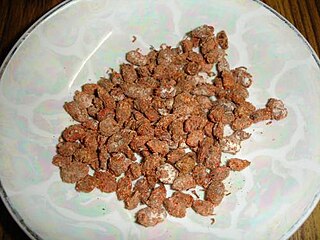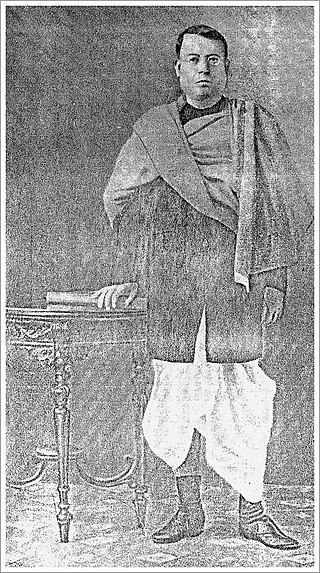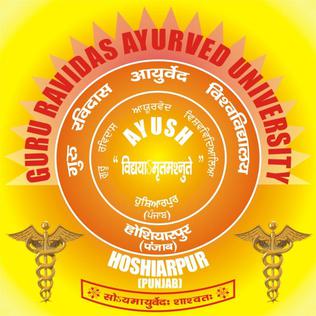
Ayurveda is an alternative medicine system with historical roots in the Indian subcontinent. It is heavily practiced in India and Nepal, where around 80% of the population report using ayurveda. The theory and practice of ayurveda is pseudoscientific.

Unani or Yunani medicine is Perso-Arabic traditional medicine as practiced in Muslim culture in South Asia and modern day Central Asia. Unani medicine is pseudoscientific. The Indian Medical Association describes Unani practitioners who claim to practice medicine as quacks.

Siddha medicine is a form of traditional medicine originating in southern India. It is one of the oldest systems of medicine in India.
Bachelor of Ayurvedic Medicine and Surgery (B.A.M.S.) is a professional degree focused on Ayurveda offered in India, Nepal, Bangladesh, and Sri Lanka.
The Ministry of Ayush, a ministry of the Government of India, is responsible for developing education, research and propagation of traditional medicine and alternative medicine systems in India. Ayush is a name devised from the names of the alternative healthcare systems covered by the ministry: ayurveda, yoga & naturopathy, Unani, Siddha, Sowa Rigpa, and homeopathy.

Vaidya Suresh Chaturvedi (1928-2017) was an Ayurveda practitioner from Rajasthan, India. Previously he was a professor at Bombay University and has written many books on Ayurveda. In 2000, he was awarded the Padma Shri, the fourth highest civilian award in the India. As an active practitioner of the ancient science of Ayurveda (healing), he is known in the national and international arenas of alternate medicines and has presented numerous papers. He has held a number of conferences in India. He was, a Ph.D guide in the University of Mumbai.
Dr. Sarvepalli Radhakrishnan Rajasthan Ayurved University, formerly Rajasthan Ayurved University, is Ayurved university in the state Rajasthan. The university situated in Jodhpur was founded on 24 May 2003.

Jamini Bhushan Ray was an Indian physician, as well as an Ayurvedic doctor (Kabiraj), an erudite Sanskrit scholar, and a philanthropist.

Central Research Institute of Unani Medicine or CRIUM Hyderabad, established in December 1971, is an Indian Government-sponsored Unani medicine research center and out-patient clinic located in Hyderabad, India. The institute was upgraded to National Research Institute of Unani Medicine for Skin Disorders (NRIUMSD), by Shripad Naik, Minister of State (IC) for AYUSH in November 2019. The Institute is well known for its successful treatment in the skin condition of vitiligo, treating more than 150,000 patients.

Guru Ravidas Ayurved University is a public university for Ayurveda, Yoga & Naturopathy, Unani, Siddha and Homeopathy located in Hoshiarpur, Punjab, India.
Vaidya Balendu Prakash is an Indian Ayurveda practitioner. He is a former physician to the President of India and the founder of Paadav, a specialty Ayurvedic hospital in Dehradun. The Government of India awarded him the fourth highest civilian award of the Padma Shri in 1999.
Paneenazhikath Narayana Vasudeva Kurup was an Indian Ayurvedic practitioner, researcher, writer and the founder director of the Central Council for Research in Homoeopathy (CCRIMH). He is a former vice chancellor of the Gujarat Ayurved University, Jamnagar and a former advisor of the Indian Systems of Medicine and Homoeopathy (ISM&H) of the Ministry of Health and Family Welfare. He has published several articles and a book, A Handbook on Indian Medicinal Plants, on the traditional Indian medicine system, The Government of India awarded him the fourth highest civilian honour of the Padma Shri, in 2005, for his contributions to Indian medicine.
Ram Harsh Singh is an Indian practitioner of the Ayurveda system of alternative medicine and the founder vice chancellor of Dr. Sarvepalli Radhakrishnan Rajasthan Ayurved University. An Emeritus Professor of Banaras Hindu University and a National Professor of the Ministry of AYUSH of the Government of India, he was conferred with the fourth highest civilian honour of Padma Shri, in 2016.
Government Ayurvedic College, Guwahati is an institute of Ayurveda in Jalukbari, Assam, North East India. Established in 1948, the college was first affiliated by Gauhati University and was later brought under Srimanta Sankaradeva University of Health Sciences in 2010.

The All India Institute of Ayurveda, Delhi is a public Ayurveda medicine and research institution located in New Delhi, India.
The Doctor of Medicine in Ayurveda or Ayurveda Vachaspati is a three-year masters-level course in the alternative medical system of Ayurveda. It is offered in some medical colleges in India and Sri Lanka. Selection to the course is generally done by a competitive national-level written entrance examination known as the All India AYUSH Post Graduate Entrance Test (AIAPGET), which is open to candidates with a Bachelor of Ayurveda, Medicine, and Surgery.
BGR-34 is an Ayurvedic-derived product that is sold in India as an over-the-counter pill for the management of type 2 diabetes. It was developed in 2015 by two government-owned laboratories and launched commercially in 2016. It has been tested in only one, modest-sized, human trial. The drug has been heavily criticized, and without more clinical trials, its efficacy remains unproven. The manufacturers have refused to acknowledge the claims of inefficacy and other concerns.

Institute of Teaching and Research in Ayurveda (ITRA) Jamnagar, Gujarat, India which was founded in 1967. It has a joint campus with, an Institute of National Importance, established in 2020.

Bhaskar Vishwanath Gokhale, also known as Vaidya Bhaskar Vishwanath Gokhale, and popularly called Mama Gokhaleji, was an Indian Ayurveda practitioner, Ayurvedic teacher, freedom fighter, and philosopher.

J.B. Roy State Ayurvedic Medical College & Hospital is a ayurvedic medical college and hospital in Kolkata, West Bengal, India. It was established in 1916 and one of the oldest ayurvedic medical college in West Bengal. This ayurvedic college is affiliated with the West Bengal University of Health Sciences. This college is also recognized by the Ministry of Ayush, Government of India. It offers BAMS degree course.











